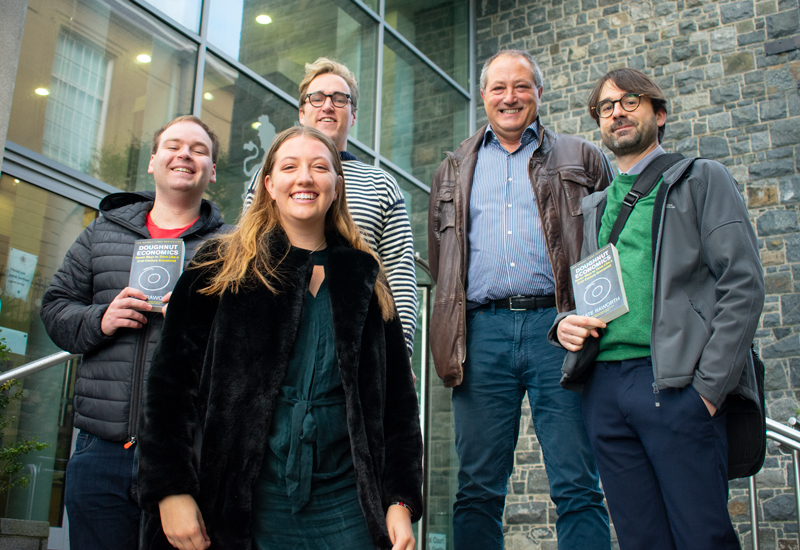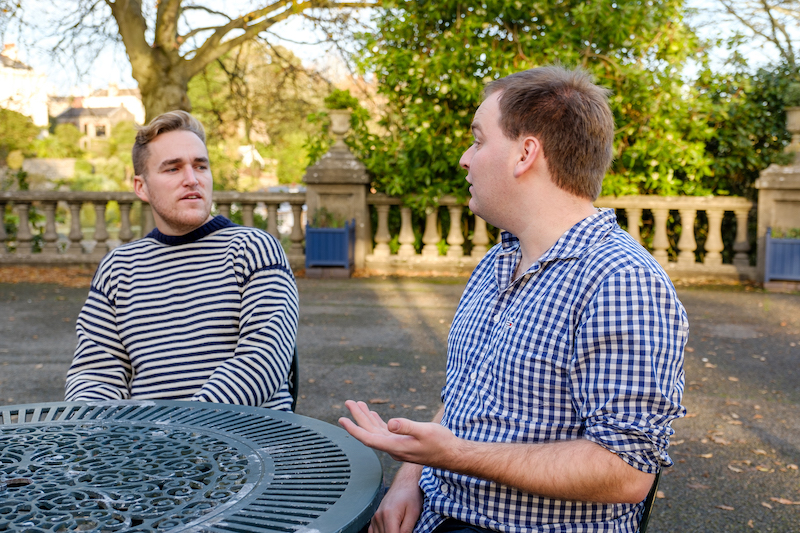


Reducing our reliance on imported food would improve Guernsey's carbon footprint and potentially grow our economy at the same, a recently-formed group of 'Green Guerns' have suggested in what they see as a realistic step forward.
Green Guerns formed "quite naturally" in recent months after a group of environmentally-minded islanders decided that they needed to be "a bit more uniform in our approach and pool a few resources together."
Their first public act was to present States members with a book, Doughnut Economics, that they hoped would show that "business as normal is not sustainable".
In an interview with Express, Greens Guerns member Pierre Ehmann said there are ways the island can be more environmental and economically resilient in one fell swoop.
"There’s lots of little things we can do that will make a big difference. I think for me, a big one would be actually growing more locally. We import I think over 90% of our food, which is insane. And although we might have a small carbon footprint on-island, that’s being accentuated abroad where they’re cutting down rainforests to grow our food, when we’ve got plenty of land here we could be growing on.

Pictured: The first public act of the newly-formed 'Green Guerns' group was to present every deputy with a copy of Kate Raworth's book 'Doughnut Economics' last month, in an attempt to persuade them to change the island's economic mindset.
"So, it’s just little things, and I think where we want to fit in is not telling people to do that, but just highlighting where perhaps we could be going further."
It is a point that has also been raised by Deputy Sasha Kazantseva-Miller in an interview with Express last month.
The Economic Development Committee Member said lockdown and Brexit uncertainty had brought people closer to nature and spurred people on to grow their own veg. This, coupled with a budding cannabis industry, has opened the door for further discussion about land use. Deputy Kazantseva-Miller is keen to gauge how much interest there would be in designating more land for community allotments.
“Guernsey comes from a history with strong horticultural roots and I don’t think we’ve lost that," she said. "I think more can be done with the horticultural and agricultural land available, this is a good inflection point to discuss meeting community demands.”
Mr Ehmann highlighted another issue, saying that food and drink packaging can make it difficult for people to understand the environmental cost of what they are buying.
"I find that very often, people say to me that "climate change is an individual responsibility", but I don’t think that’s the case at all. I think we need collaborative action. Most people don’t have the time to check the packaging. You need government to step in and maybe label things more clearly."

Pictured: One of the biggest challenges the Green Guerns say they face is the mindset that Guernsey is too small to make a difference.
William Carter from the Green Guerns said it's a matter of finding what works for you, rather than taking a defeatist attitude that your actions are of no consequence.
"I would say if you’re in a position to, definitely check the food packaging. If you’re in a position to do meat-free Mondays and reduce your consumption, but that’s obviously a personal choice and people are in different positions to do different things. It’s about finding what’s comfortable for you. Something is better than nothing."
"[We want] to explode that myth that, because Guernsey is a small jurisdiction, it doesn’t matter, it has no influence on climate change, because it’s scientifically inept. As an economically-developed jurisdiction, we have a really disproportionately high impact on climate change, compared to a population of a similar size in a developing country on average."
Mr Ehmann said that growing more locally would help solve that issue and is something that "everyone can see the sense in, so it's a good in."
"I think the one thing people tend to agree on, even the type of person that says to me "but Guernsey’s so small, this is silly, we shouldn’t be doing anything" is that we could be growing more locally, so I think that would be quite a good step."
Pictured top: Pierre Ehmann and William Carter from Green Guerns.
Comments
Comments on this story express the views of the commentator only, not Bailiwick Publishing. We are unable to guarantee the accuracy of any of those comments.